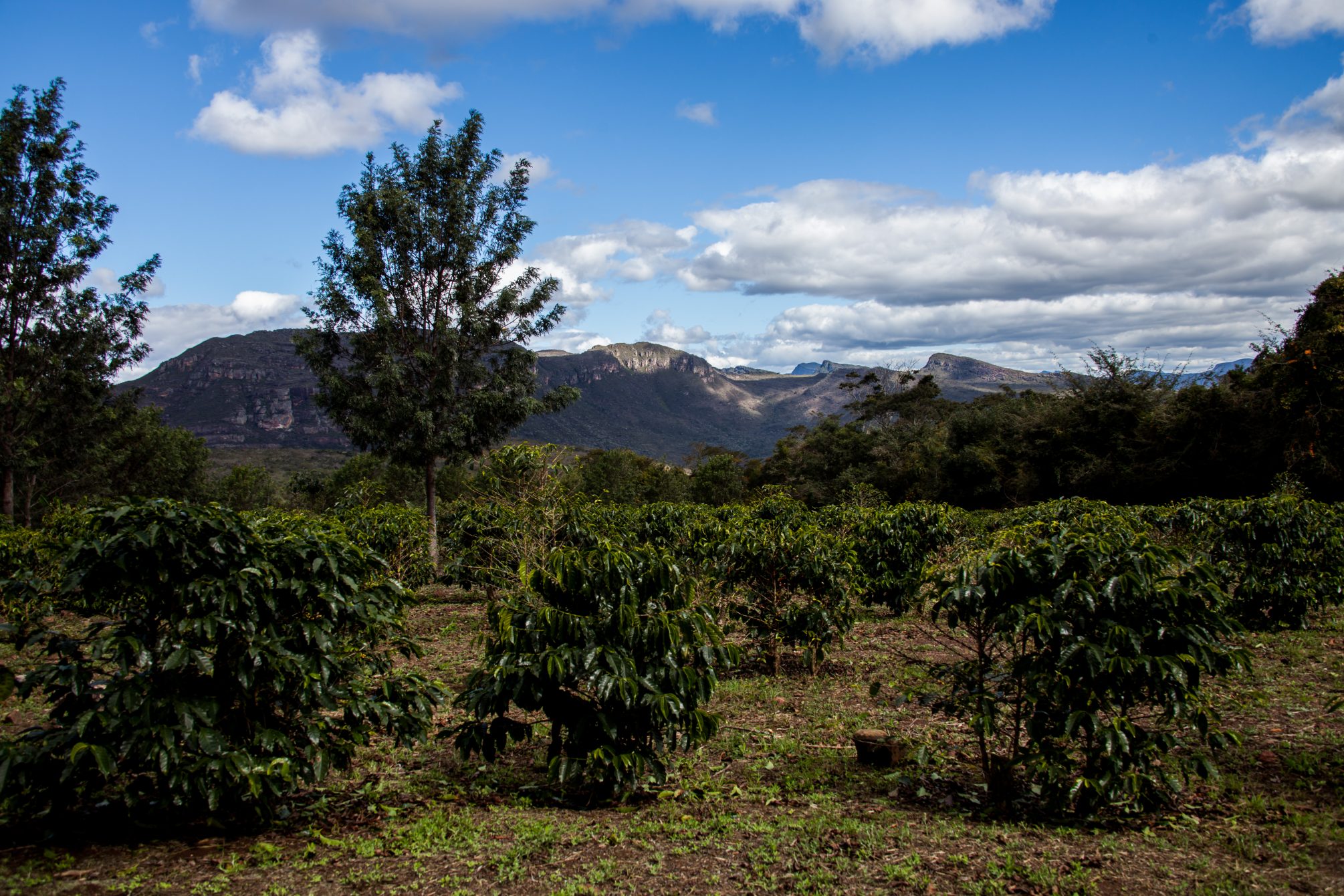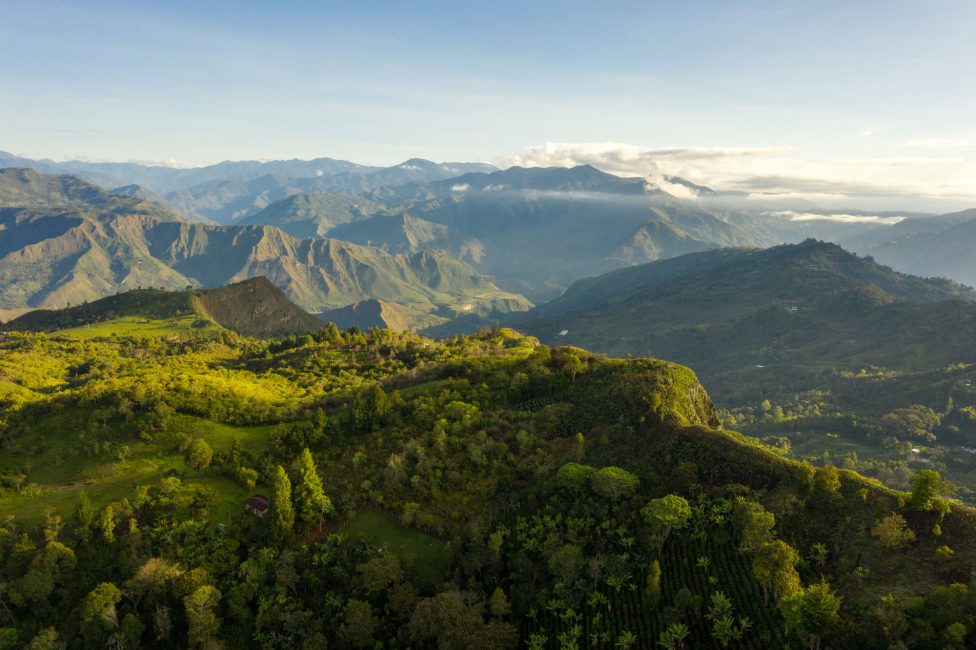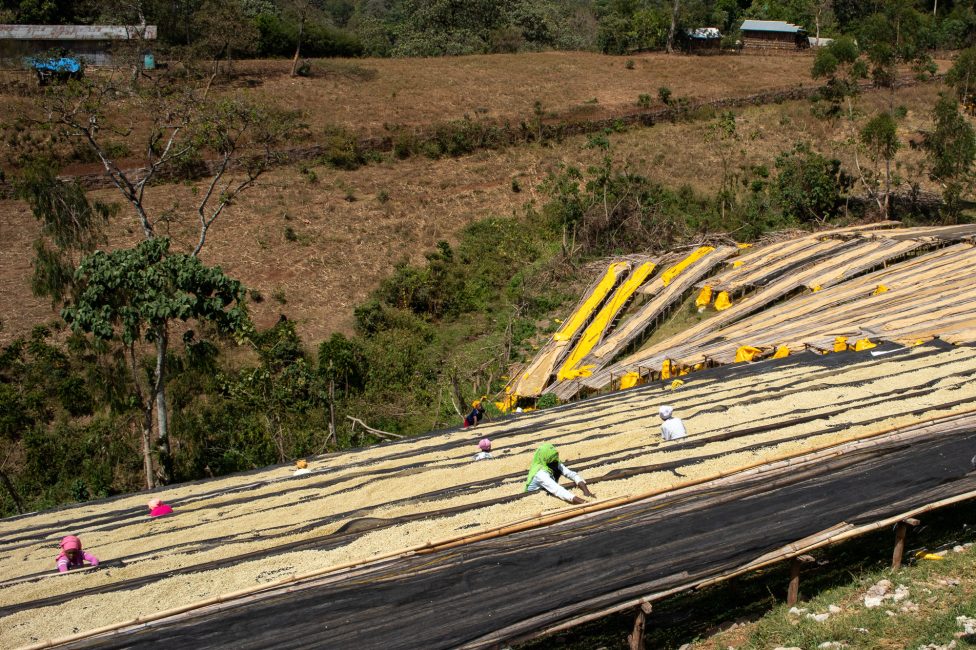Floresta (Organic)
Full body with molasses, complex wine like acidity and notes of stone fruit, red apple, plum and dark chocolate.
This coffee comes from the Chapada Diamantina region of the Bahia state in Northeast Brazil. It is grown at 1,200 metres above sea level by Nelson Ribeiro.
Chapada Diamantina translates to “Diamond Plateau” in Portuguese. For 100 years, this area was mined for the gemstones embedded in its cliffs. Today the region is famous for its specialty coffee—in 2016, 19 of the 24 winning coffees in Brazil’s Cup of Excellence came from this region—and this is no accident. The region enjoys high altitudes and the perfect micro-climate to produce very special coffees.
The Chapada Diamantina region is also the largest biodynamic coffee-producing region in Brazil, with more than 600 workers and their families involved in this form of agriculture. Biodynamic agriculture is the oldest consciously organic approach to farming and gardening and is one of the most sustainable in existence. It is founded on a holistic and spiritual understanding of nature and builds on the pioneering research work of Rudolf Steiner.
Nelson Ribeiro, the owner of Fazenda Floresta, started working in coffee from a very young age after moving to Bahia in 1979 with his parents. In the late nineties, Nelson began to adopt organic farming practices on his family’s farm, and since this time he has worked tirelessly to transform the farm and embrace the principles of Rudolf Steiner.
Today Nelson works with his three sons on Fazenda Floresta. Twenty-seven hectares of the 80-hectare farm are dedicated to coffee production. Nelson is an active member of the Asociación Biodinámica d’Ibicoara (ABI). He eschews the use of agrochemicals, instead applying solutions made from plants, minerals, and other natural materials (such as cow manure) that inoculate the soil and help to maintain a healthy balance.
The result is a very complex and interesting cup profile. We have been impressed with this coffee season after season, and buy it because it stands out on the cupping table every time. This year it is very fruit driven, but complex and balanced, and shone on the cupping table and got us all very excited!
HOW THIS COFFEE WAS PROCESSED
This particular lot has been processed using the natural method, in which the cherries were selected at the peak of ripeness, and then carefully dried on raised African beds in the sun, and turned regularly to ensure they dried evenly until they arrived at the right level of humidity.
You can read more about Floresta and organic practices in Bahia here


